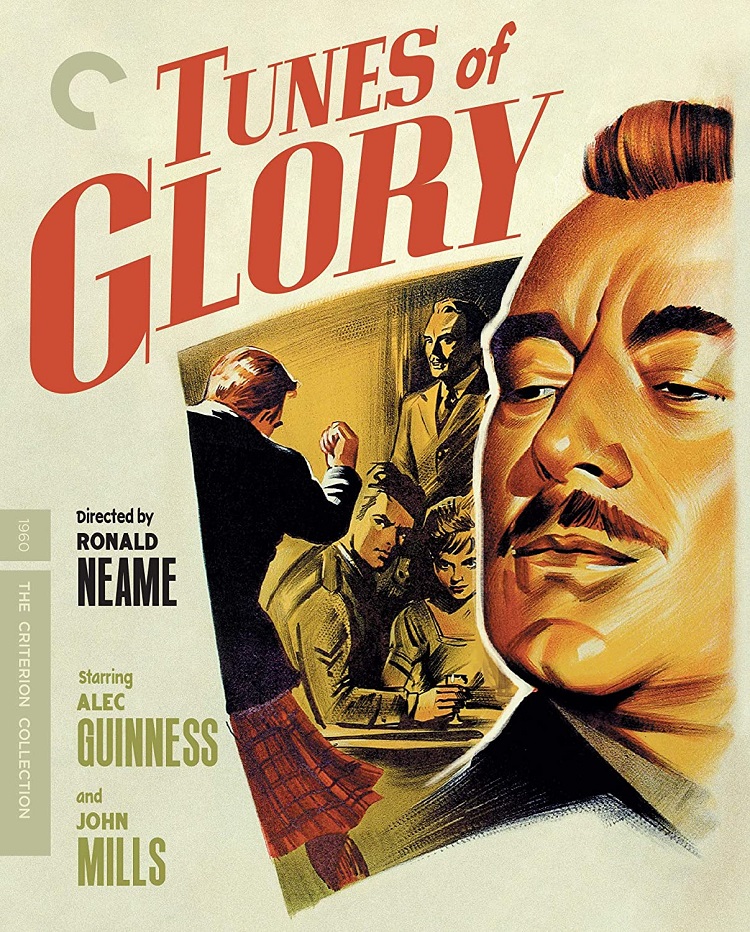
I have been on a bit of an Alec Guinness kick of late. He’s an actor I knew and loved from epic dramas like The Bridge on the River Kwai and Lawrence of Arabia and of course as the Jedi Knight Obi-Wan Kenobi in the Star Wars films. It has been a true treat then to dive deeper into his filmography and find so many wonderful performances. He was known to me mostly as a dramatic actor and so it has been a delight finding what a charming comedic actor he also was in films like The Man in the White Suit and The Lavender Hill Mob. I will surprise no one when I say he was truly a magnificent actor. His ability to do things like play multiple characters (and make each one distinguishable) in Kind Hearts and Coronets, or command the screen without saying a word in The Prisoner is nothing short of brilliant.
Whether playing for laughs or starring in some David Lean epic, Guinness was always a commanding presence. No matter who else shared the screen with him at any given time my eyes are always drawn to him. A huge part of this is his voice. That very British tenor is unmistakable. Which is why it is so off-putting at first to hear his attempt at a Scottish brogue in Tunes of Glory. I did several double-takes when he first spoke in that film wondering if I wasn’t seeing a look-alike or something. In that film, Guinness plays Major Jock Sinclair, commanding officer of a Scottish highland regiment. He’s been commanding the regiment since the battalion’s colonel was killed in North Africa during World War II. But now that it is peacetime the higher-ups have decided to send in Lieutenant Colonel Basil Barrow (John Mills) in to command.
It quickly becomes a battle of the wills as Sinclair has the respect of the men, but runs the regiment like a good old boy. He heartily drinks whiskey with them, carouses with them, and generally acts like a grand pal (albeit one who still commands a great deal of authority.). Whereas Barrow is much more by the books. He writes the men up for not being properly dressed and forces everybody, officers included, into dance training. Sinclair is a man who came up through the ranks, whereas Barrow was an officer, his station has always been higher. This is the heart of their conflict. To tell you just how Scottish this film truly is one of the big arguments is whether the men’s hands should be at their side or up in the air during a highland dance.
It all comes to a head when Sinclair punches a piper (bagpipe blower, because Scottish regiments cannot do without a squadron of bagpipe players) when he learns the man has been seeing his daughter. Trouble is both men were in uniform and the “bashing” took place in front of civilian witnesses. This is strictly against the rules. Barrow must then decide whether to make an official report which would lead to a court martial or let the matter go. Making a report is the proper procedural and is what he’d really like to do but it would mean destroying a man’s career and would certainly not do his reputation any good amongst the men. Letting him get off would give Sinclair the upper hand in their relationship and might cause a stir amongst civilians. It concludes in a way that surprised me and that was an emotional gut punch.
It walks the line between jocularity and sincere drama that isn’t always satisfying. In the early scenes, Sinclair is a man who has been through war with his soldiers and now allows them to have fun. There are some nice comedic moments but nothing that got me rolling. As the battle of wits takes over, there are also some interesting dramatic bits, but it never quite connected with me until the end.
What it lacks in filmmaking and story it makes up for in acting prowess. It takes a moment to get over that brogue of Guinness’ but once you do, he puts in a fine performance. He’s just as commanding as ever, but in an entirely different way than he was as Colonel Nicholson in The Bridge on the River Kwai. Mills’ role is more Nicholson with his dependence on military code and formal manner. His performance is just as good and together they are mesmerizing to watch. So while Tunes of Glory is a lesser film of Guinness’ it is well worth watching for the two lead performances.
The Criterion Collection has done their usual fine job of putting the film together. It comes with a new 4K restoration that looks terrific. Extras include an archival interview with director Ronald Name, another one with John Mills and an old television interview from 1973 with Guinness. Also included is a nice essay by film scholar Robert Murphy in the booklet.